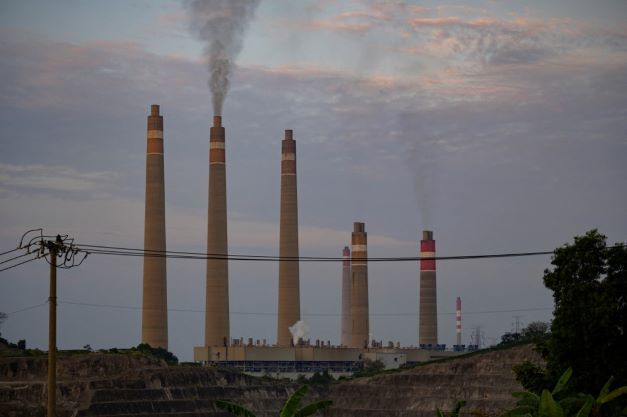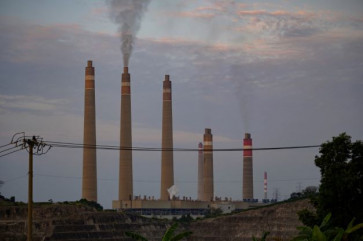Popular Reads
Top Results
Can't find what you're looking for?
View all search resultsPopular Reads
Top Results
Can't find what you're looking for?
View all search resultsIndonesia’s renewed climate targets still critically insufficient, says research group
Indonesia’s climate targets are “critically insufficient,” said a global climate research consortium, despite the country’s renewed emission target.
Change text size
Gift Premium Articles
to Anyone
I
ndonesia’s climate targets are “critically insufficient,” a global climate research consortium has said, despite the country’s renewed emission target.
Indonesia this year announced plans to reach net-zero emissions by 2060 and to reduce its carbon emissions by 31.89 percent independently or 43.2 percent with international assistance by 2030, in its updated Nationally Determined Contribution (NDC) submitted to the United Nations Framework Convention on Climate Change (UNFCCC) secretariat. This is a slight increase from the 29 percent and 41 percent, respectively, outlined in the first NDC target submitted in 2016 and retained in a revised NDC last year.
The forest and land use sector in Indonesia is expected to be the largest contributor to its emissions reduction, accounting for a 25.4 percent reduction in overall emissions from the baseline figure or 729 metric tonnes of carbon dioxide equivalent. The second largest is set to be the energy sector, accounting for a 15.5 percent reduction, or 446 metric tonnes of carbon dioxide equivalent, followed by waste at 1.5 percent, agriculture at 0.4 percent and industries at 0.3 percent.
Despite these changes, Climate Action Tracker (CAT) still rated Indonesia’s climate targets as “critically insufficient,” the same rating it gave to the country in September 2021 before the new targets were announced.
The critically insufficient rating is the worst of five ratings given. The other four are highly insufficient, insufficient, almost sufficient and compatible with the Paris Agreement's safer global warming limit of 1.5 degrees Celsius.
If all governments were to put forth their targets and policies which had been rated critically insufficient, global warming would exceed 4 degrees Celsius by the end of the century, said CAT.
Institute for Essential Services Reform (IESR) executive director Fabby Tumiwa said recently that Indonesia should have set more ambitious targets as its enhanced commitment still relied on a “business-as-usual projection,” thus could still be easily achieved.

















